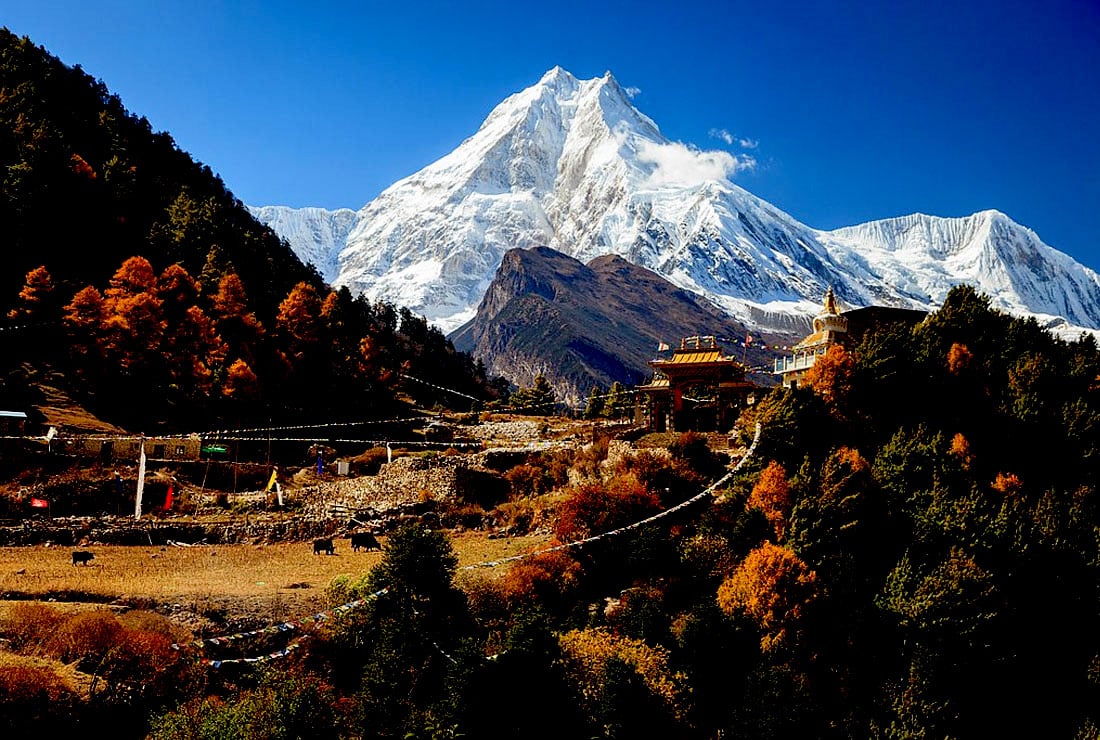Manaslu Circuit Trek is nice to feel alive in various remote and traditional areas for decades! Riding through this incredibly diverse landscape, you are a guest in the homes and backyards of the folks who build their lives in these desolate reaches. The Manaslu Trekking exchange is what makes the process work – for not only are you receiving an entire lifetime’s worth of memories and experiences whilst there, but you’re also directly feeding back into an important commercial/cultural system. The hike you decide to do (provided it’s done responsibly and ethically) can also actually have a net positive effect on the health of those communities, maintaining their natural living treasures. This guide aims to give you some tips on how you can do your bit for the local economy and build a relationship with the people living in the Manaslu region.
The Manaslu Circuit Trek Permit System and Its Role
Manaslu Circuit Trek Permit. The permit process of the Manaslu Circuit trek is the foundation stone for responsible tourism in the region. Profits from permits, especially the Manaslu Restricted Area Permits, are plowed back into conservation and community development projects. Funds pay for projects like schools, trails, and health clinics. In this way, (paying the Manaslu Circuit Trek Cost and adhering to permit rules), you are supporting the ECO tourism in the area and its sustainability. This system also ensures that more of the money generated by tourism reaches local people, rather than concentrating largely in a few big companies. It’s an excellent form of instant gratification for local communities.
Hiring Local Guides and Porters
The best way to support the economy in this region is to hire knowledgeable guides and PORTERS through a reputable trekking company. But keep in mind that your guide and porter are not just there for your protection and comfort; they are the foundation of a local economy. They are your cross-cultural bridge, a translator, and the connection to the people and the land. It is their source of livelihood and means to feed their families, even without the necessity of migrating out of villages in search of something better in cities. They withhold a portion of your Manaslu Circuit Trekking price for this, and spend it in the local teahouses towards villages and throughout the region.
Supporting Local Teahouses and Businesses
The guesthouses in the Manaslu Circuit are at the heart of the trekking economy. These little family-owned shops were waiting on the trekkers for their livelihood. You support the families that have those by sleeping in these teahouses and having all of your meals and drinks there. It’s also the most impactful factor in the teahouse model. It works when you buy stuff from them: snacks, hot drinks, and other little things. Just be prepared for price hikes as you go higher up, because they make a bloody effort getting supplies to these remote villages. How about we pay these prices with a sense of gratitude for their tireless effort?
Purchasing Locally Made Handicrafts
There are small shops along the way selling local handicrafts, including weaving items, prayer flags, and souvenirs. They’re terrific to buy as a piece of the country, book it, and have opportunities to feel good about giving back to the local community. The money you spend on a Potli goes into the hands of the people who actually made it, providing them with an income for their traditional art skills. If you’re in the foothills, though, there are also regional spices or honey and so on that you can buy as a present or souvenir.
The Beauty of International Exchange and Respect
Helping local charities is not just about money. It’s respect for a culture. Show a hobby in local lifestyles. some words in their language, including “Namaste” or “Tashi Delek.” The sense is unfastened to graciously take the food or tea after they offer you something. As long as it is with permission, take photos. By being polite and curious, you assist in creating a good image for trekkers and work toward positive relations between visitors and locals. This loving exchange is a great deal more than a business transaction.
Responsible Environmental Practices
The natural environment, so important to neighborhood people, needs to be sorted. The local villagers in the Manaslu region own their land and are concerned about tourism’s impact on the environment. Do your part by following “Leave No Trace” principles while Packing It Out and not disturbing wildlife; you are helping to preserve the natural areas they live in. And contribute to controlling the problems related to waste by adding a water treatment system to avoid purchasing plastic bottles and mineral water.
Giving Back Through Community Projects
Some trekkers go one step further and volunteer in town. You may wish to do some research before your trip, in case similar NGOs or projects are operating in the Manaslu area. Perhaps you can bring school supplies, donate to a local healthcare clinic, or donate to a reforestation program. You may also get suggestions from your trekking employer on where to offer domestically. Such engagement can have a beneficial, enduring effect, and it’s a first-rate way to give back to the groups that have made you feel at home in their own homes
Summary of Our Sustainable Adventure
The Manaslu Trekking is a beautiful trek that puts any traveler in mind of the potential of ethical and sustainable travel. When you think about where your money goes, from supporting small businesses to maintaining cultural traditions, to reducing the impact on the overall environment, the whole area and its people will have a great time. The journey might be worthwhile while you realise that your travels have benefited the people you visited along the way. Certainly, he most irreplaceable souvenirs you are taking from the Manaslu Circuit Trek could be snaps of stunning landscapes, physical fulfillment, and well-earned emotions of pride in having been a responsible and respectful tourist.




